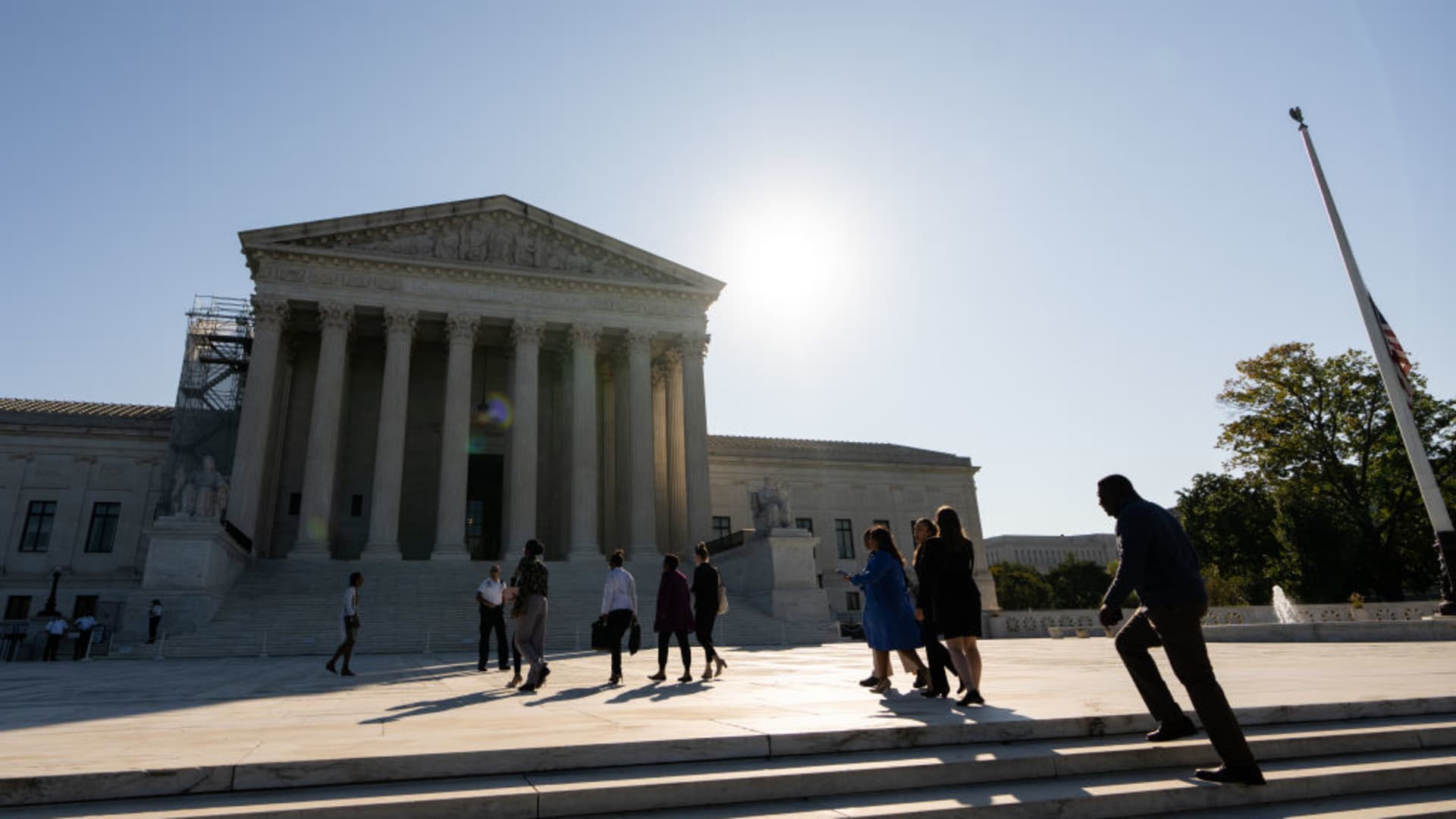
Visitors walk across the U.S. Supreme Court plaza on the first day of the court’s new session on Oct. 2, 2023.
Bill Clark | Cq-roll Call, Inc. | Getty Images
WASHINGTON — The Supreme Court on Wednesday will hear a broad legal attack on the Securities and Exchange Commission, giving the conservative majority another chance to curb the power of federal agencies.
The case is one of three on the Supreme Court’s docket considering what has been broadly described as an attack on the administrative state led by conservative groups and business interests. The court, which has a 6-3 conservative majority, has frequently been supportive of such efforts.
The challenge focuses on the power the SEC has to enforce securities laws, including those prohibiting insider trading. The SEC uses in-house proceedings presided over by administrative law judges or sues in federal court. In both sets of proceedings, it can seek financial penalties.
Those subject to the in-house proceedings have bristled, saying they violate their rights and give the SEC too much power by essentially creating a home-court advantage.
One critic is hedge fund manager George Jarkesy, who brought the legal challenge after he faced SEC claims that he violated securities laws by making misstatements and omitting relevant information in communications with investors while he was overseeing two hedge funds.
“It is widely recognized that the SEC virtually always wins in its own home courts,” Jarkesy’s lawyers said in court filings.
After an in-house proceeding in 2014, Jarkesy and his firm were ordered to pay a $300,000 penalty, and he was barred from certain roles in the securities industry. The firm was also ordered to return nearly $685,000 in what the SEC considered “illicit gains.”
Jarkesy’s legal crusade has the backing of billionaires Elon Musk and Mark Cuban.
The case raises three weighty constitutional questions that could weaken the SEC’s powers, at least when it comes to the in-house proceedings.
One is whether the adjudication of cases by the in-house judges violates the right to trial by jury under the Constitution’s Seventh Amendment.
Another is whether the SEC has the authority to decide whether cases can proceed in-house or in court.
The third is whether the SEC judges are improperly protected from losing their jobs because they can be removed only “for cause.”
A three-judge panel of the New Orleans-based 5th U.S. Circuit Court of Appeals ruled against the agency on all three counts, prompting the SEC to ask the Supreme Court to intervene.
In defending the current process, Solicitor General Elizabeth Prelogar said Congress had the authority to allow the SEC to enforce securities laws using in-house judges.
When the court heard the first of its administrative agency cases in October, it did not appear receptive when it considered a bid to weaken the Consumer Financial Protection Bureau.
In January, the court will weigh whether to overturn a landmark ruling from 1984 that gave federal agencies leeway to interpret the law when a statute is not clear.
